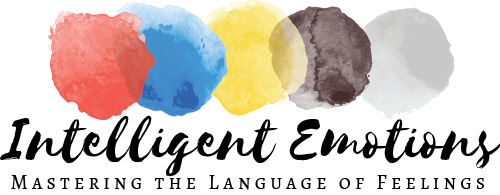Feeling SAD: Sadness as the Emotion of Mattering
Out of the BIG 5 Emotions of MAD, SAD, GLAD, SCARED, and NUMB, all but the last are called the emotions of SIGNIFICANCE. They basically say what really MATTERS to you. Of those four, this post zooms in on SADNESS and FEELING SAD in particular.
About Feeling Sad
SADNESS says that something or someone really matters to you, and that someone or something is far away from you. You no longer have close access to it because of temporary reasons; maybe you scheduled a hangout with your friend that fell through, or you lost your favorite watch, and you get this sense of longing or loss. That’s what feeling sad is really about.
Sometimes the emotion of sadness may move you to try to close the gap between yourself and the thing or the person you lost. Like texting that friend saying, “I really miss you; I’ll see you next time,” or taking the time to acknowledge the memories of the home you moved away from because of this new exciting job. They’re NOT mutually exclusive. You can have a good thing happen and also feel sadness towards whatever you’re saying goodbye to.
Feeling sad signifies that something REALLY MATTERS to you. So, the stronger the sadness, the greater the significance to your personal life.
Four Objects of Sadness
You can feel sad about multiple things:
Concrete objects
Relationships
Abstract things
Secondary losses
You can be sad about CONCRETE OBJECTS. For example, the watch you lost, or your kid’s favorite teddy bear. You left it at the cabin, and your kid is really distraught.
You can feel loss over RELATIONSHIPS because of a breakup, or someone moved away, or things just changed in life, and you’re finding the other person or yourself have changed in ways that y’all are no longer experiencing the same kind of intimacy anymore.
You can also feel sadness about ABSTRACT THINGS. People can actually mourn things that are more ethereal, things like dreams of what could have happened. It never materialized, but a person got very excited and hopeful about something. Well, things change, and the hope for that ideal is no longer a possibility. A person can still feel bummed about that or feel grief about that.
For example, parents losing a child to an accident. Parents, as part of their grief process, mourn what the child’s life could have been. So, just because it never materialized, doesn’t mean the loss didn’t happen. It’s actually a very REAL thing, but because it’s abstract, it’s harder to trace, and therefore, it’s harder for the individuals themselves to validate their pain and receive validation from others.
Sadness also comes in the form of SECONDARY LOSSES. These come about because of the initial primary loss. For example, when someone experiences a breakup, the partner or relationship is the primary loss. The SECONDARY LOSS is the favorite restaurant you used to go to with your ex, now it’s super awkward to go there and enjoy it. Or any mutual friends you may have had could be secondary losses. Any loss that comes from a ripple effect of the original loss, those are losses too. A person from one event can experience many layers of sadness and have all those be about different aspects of the entire experience.
Feeling SAD? DO cry over Spilled Milk
You might hear the common phrase, “Don’t cry over spilled milk.” It's often focusing along the lines of, “you can't do anything about it anyway, so what's the point of feeling the emotion around it?”
Well, crying was never about the milk.
Crying was never meant to un-spill the milk. The milk was spilled, it still needs to be cleaned up, but crying was originally meant to be an EXPRESSION of one's PAIN and to verify and VALIDATE the truth of what happened.
What SHOULD have happened NEVER DID.
What SHOULDN’T have happened DID.
That’s what crying is for.
Emotions tell the truth; they say what's actually happened. So, you spill milk, you still gotta clean up the milk at some point in time, but it's still important to have a time or a moment to give yourself permission to actually ACKNOWLEDGE the REALITY of what's happened.
Crying is an inherently physiological experience where the body is trying to ADJUST to the new reality of what's happened while also trying to hold on to the past reality or the past possibility.
So, if you find yourself feeling SADNESS or if you find yourself having lost something give yourself permission to hang with it a bit more.
Now, that doesn't mean that you should shut off what's happening for you in the present and completely bunker down. Still stay engaged in the present the best you can, but DO give yourself permission to have those pockets of moments where you can acknowledge that something really MATTERS to you or someone really was an important part of your life.
In addition to that, when you come across someone else who's experiencing sadness, you don't have to particularly value what they value, but you can still sit with them and say,
“Hey, because you matter, I will also treasure and honor this thing that really matters to you.”
See what that does for your relationship.
Need more resources on SADNESS? Find them here.
The BIG Feelings Chart
Not sure what to do when any of the BIG 5 Feelings show up?
Grab this free PDF chart that shows you what to do with MAD, SAD, GLAD, SCARED, & NUMB!
Plan to read this later? Pin it to Pinterest!
Other Blogs on Sadness
© Copyright 2023 Joanne Kim. All rights reserved.
Joanne Kim, Feelings Translator
Hi! I’m a therapist-turned feelings coach who helps Highly Sensitive Persons, Empaths, Enneagram 2s & 4s, etc. turn their BIGGEST feelings into their GREATEST superpower!
They are often the first (or only) person in their family to intuitively process and express feelings; consequently, they are often judged or criticized so that they learn to people please, placate, or perform until they hit a wall.
They’re super familiar with anxiety, guilt, and shame, partly because of an allergic reaction to anger (theirs and others').
Often the super responsible, empathic, and ethical person in their environments, they reach out to me after they're already burned out, resentful in their relationships, or sucked into their shame spiral.
The most common feedback I get from people when I share about how feelings work is,
"Why didn't anyone teach me this in school??"
Hence, I am building a school helping people work WITH their feelings so their feelings work FOR them.














